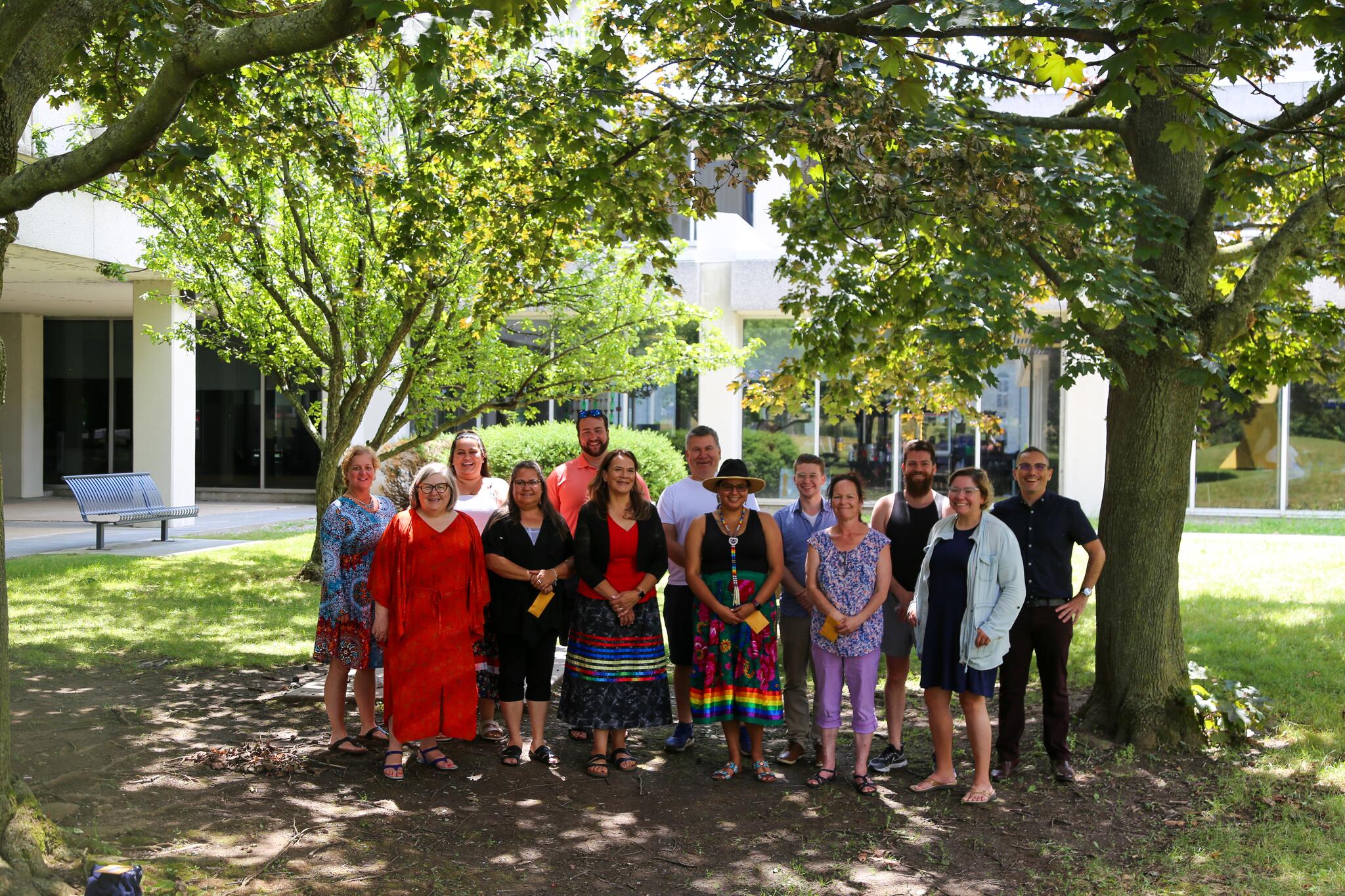
In alignment and support of the themes developed for the Academic Plan (2019-2025) – including collaboration, academic excellence and a sustainable vision, the Faculty of Education is excited to begin a new partnership with Kenjgewin Teg.
The community-based site, Kenjgewin Teg, is a space that welcomes students who are ready to pursue their academic goals while gaining a greater understanding of the Mnidoo Mnising Anishinabek. Kenjgewin Teg is an Ontario accredited Anishinabek post-secondary place of learning by the Indigenous Advanced Education and Skills Council. Together, the Faculty and Kenjgewin Teg staff wish to establish collaborative relations to support program development, recruitment and students in relation to the Queen’s University Master of Education in World Indigenous Studies in Education (WISE) program.
WISE is a progressive MEd program that provides the opportunity for students to pursue their own research interests without leaving their community, family, or job. The program is offered part-time and is a blend of both online and on-campus learning opportunities for students with experience in Indigenous communities and/or World Indigenous issues. The program welcomes allyship and students with experience and/or demonstrated commitment to Indigenous truth, reconciliation and knowledge mobilization.
The Faculty of Education within WISE aims to cultivate an inclusive community; create welcoming classrooms and social spaces for all students, faculty, and staff; ensure equitable and inclusive policies, processes, curriculum and events; and support marketing, recruitment, and retention initiatives that enhance a diverse teaching and learning community at the Faculty. The inclusion of Anishinabek worldview in teaching and learning will be achieved through the commitment Kenjgewin Teg has set to deliver culturally relevant post-secondary education, training and skills development which is guided by their Anishinabe Adziwin Philosophy. The two institutions will undertake several collaborative activities. These activities revolve around the support of WISE students. Regular meetings between the two parties will occur with further collaboration with the exchange of information, material, and various Indigenous academic and/or cultural activities that are of mutual interest.
Students enrolled in WISE will be offered Elder support to ensure their personal, spiritual and emotional wellness needs are met. The Elder support can include exploring teaching and supervisory support as well. Students will have a dedicated study and research space while physically attending either institution. Together they will collaboratively explore course layout, proposed new courses, potential internships, and curriculum for program improvement. Leaders in education in Ontario have said that any student who seeks advanced and higher education will be able to access it without financial barriers and through jointly exploring grant proposals and development opportunities. This partnership aims to support WISE students financially in additional ways.
It has been established that positive growth exists where Indigenous communities are taking more autonomy of their education. In support of this, and in further alignment with the Academic Plan, Queen’s University has incorporated two-eyed seeing education, whereby education is seen through a Western and Indigenous lens with one eye. This partnership will further Queen’s commitment to Indigenous education in further ways thereby resulting in greater success in meeting the objectives of the Academic Plan.
Claire Scruby is a student in the Queen's University Master of Education Program. She has completed her Bachelor of Arts (Honours) Degree with a Major in Global Development at Queen's University. She has completed her Bachelor of Education Degree through the Concurrent Education Program at Queen’s University. She was part of the Indigenous Teacher Education Program, focusing on the teachables of First Nations, Métis and Inuit Studies, as well as French as a Second Language. Through her paternal grandmother, Claire has ancestral roots with the Algonquins of Pikwàkanagàn First Nation.